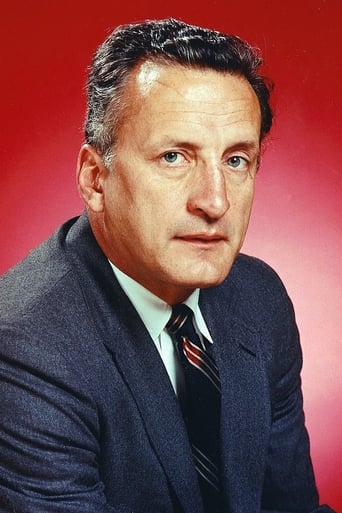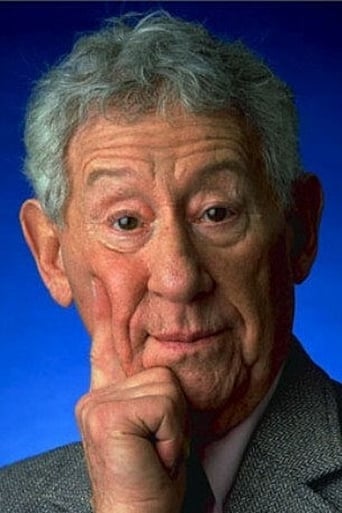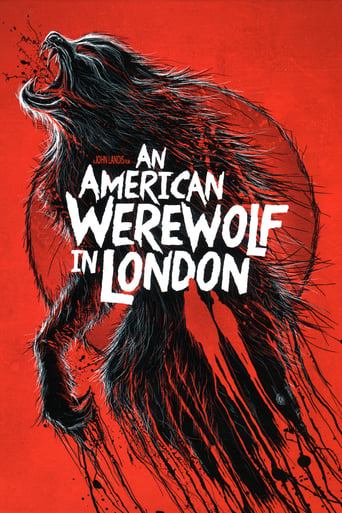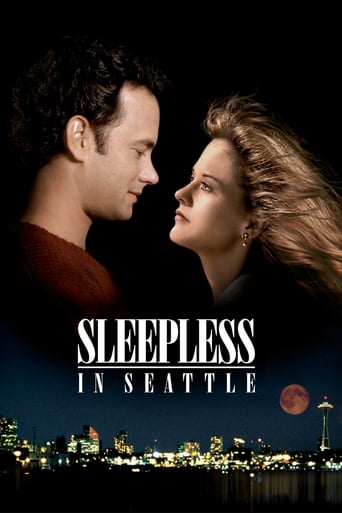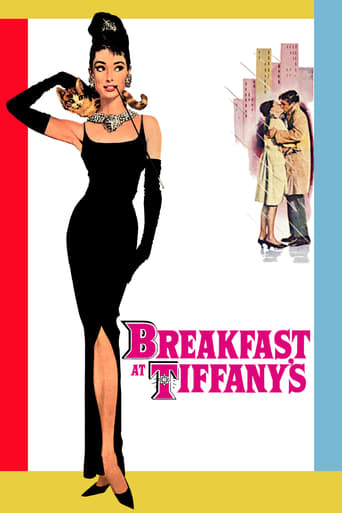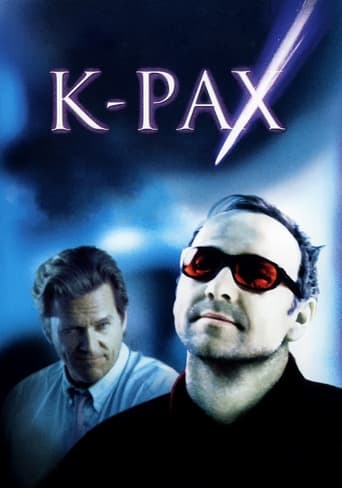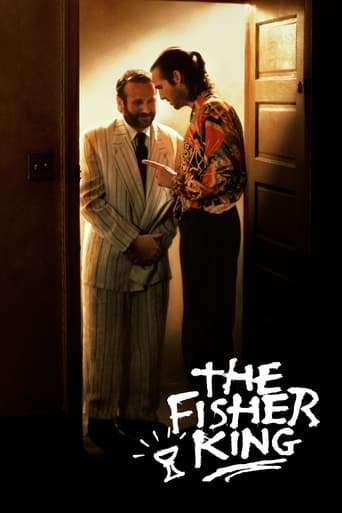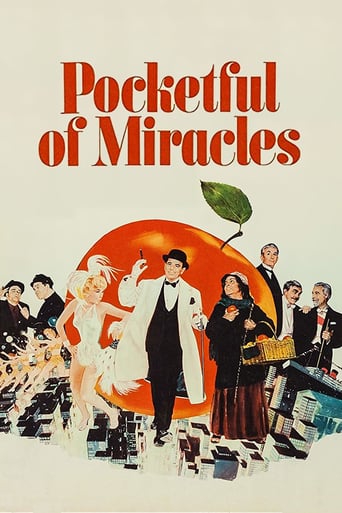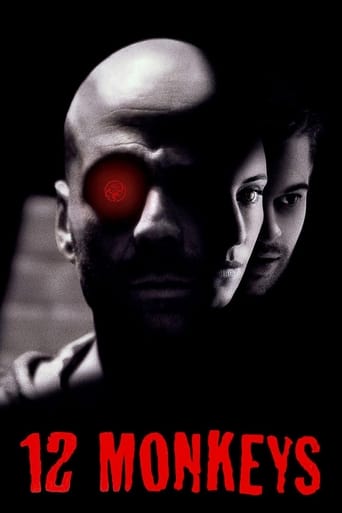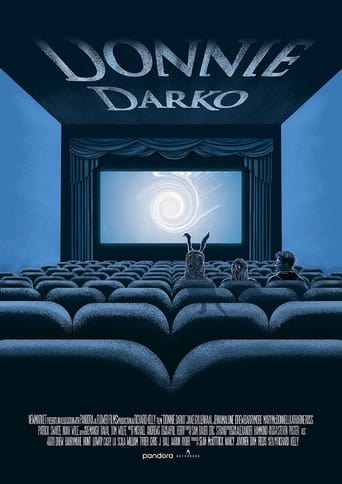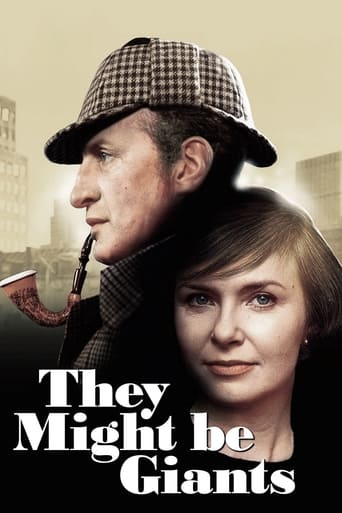
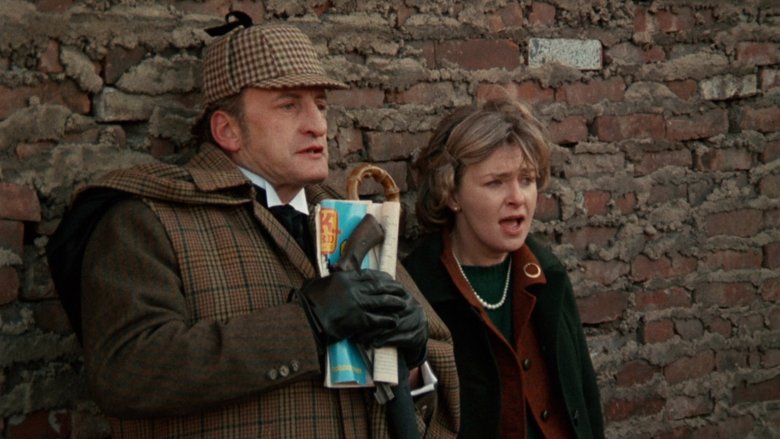
They Might Be Giants (1971)
After the death of his wife, wealthy retiree Justin Playfair creates a fantasy world for himself in which he is the legendary detective Sherlock Holmes, even dressing like the character. Out of concern for Justin's money more than his health, his brother Blevins puts him under the care of psychiatrist Dr. Mildred Watson. As Dr. Watson grows fond of Justin, she begins to play along with his theories, eventually becoming an assistant in his investigations.
Watch Trailer
Cast


Similar titles
Reviews
Because life's a bitch and then you die Jim Goldman enjoyed a significantly lower profile than his kid brother Bill, despite being his equal as a writer. I write as a huge admirer of both brothers and the fact remains that excellent as were Robin and Marian, Myself As Witness, The Lion In Winter and They Might Be Giants they somehow lacked the ooomph of Butch Cassidy And The Sundance Kid, Marathon Man, The Princess Bride and inevitably existed in the shadow of the younger sibling. It's a pity but there you go and so long as we can check out stuff like Robin and Marian, Lion In Winter and this one on DVD it could be worse. George C. Scott can be mannered on occasion but here he lucks into a part that fits him like a glove whilst Joanne Woodward is a consummate actress who can turn her acting chops to anything. The plot is a nice blend of off- the-wall and sound psychology and a good time will be had by all discerning viewers.
The movie is full of charm and wistfulness. So many people living in their own world. Admittedly a bit of a comic stretch in some of the scenes, the ending struck me emotionally. What it seemed to say was It is better to die on your feet with your own sense of reality than die on your knees with the reality forced on you by others. And the ending is a composite of that and the true reality of imminent death. That last scene allowed me to take the spiritual (if you will) content of the movie above what went before. A small gem hidden in the earth.Scott and Woodward hold up their end as far as the acting goes. Jack Gilford is miscast; Lester Rawlins speaks his lines woodenly; Al Lewis reminded me of Peter Laurie at the end of his career walking his shark around the swimming pool on a lead; Ron Weyand could pass for a Hassidic Jew with a southern accent in his part. It puzzles me often that supporting actors can come across so badly while the costars rise to the occasion. Yet other actors playing bit parts are quite entertaining. At any rate, if you can swallow some of the acting and get into the movie, it can hold you with its subliminal sense of other-worldliness.
I was a projectionist once, and I showed this film when it had its theatrical release. One aspect of being a projectionist back then was that you got to see certain parts of the films over and over, to the point that you not only could relate scenes and repeat lines, but you began to understand the films in a deeper way than the audiences.The previous reviews miss enough that I feel compelled to write a review of the film. First, the same author wrote "Lion In Winter," so it is pretty obvious he knew the craft. Second, this started as a London stage play, and according to the admittedly loopy Wikipedia, he didn't like the production and stopped further attempts at mounting the play.Once you take the concept that it is a stage play adapted for film, some of the oddities of this production become more apparent. Much like the concept expressed in "Shakespeare in Love," where everyone expects and looks forward to the dog in a play, movie audiences expect a romantic relationship and a happy ending where good triumphs over evil, the Hayes code is satisfied, and insipid movies are safe for kids to watch.The intent of the original work is darker than that, but in order to perceive that you have to look underneath the surface, much as Holmes would do.Start with the title "They Might Be Giants." Yes, it is an homage to Cervantes, but it is a double-entendre as well. In ignoring the dross of everyday life and focusing on existential topics to the point that the world calls them crazy, the "mentally ill" just might be the giants of humanity, exploring the boundaries of who we are as humans and good and evil. Certainly the Justin (justice) Playfair (play fair) character turning into a Holmsian sleuth represents that. The couple who shut themselves off from humanity for years and were very happy is another exploration of the concepts under consideration. It is only when Holmes goes looking for evil in their world that it suddenly appears.Who is to say that a person who believes himself to be a silent film star isn't, in some small measure, that person? The entire concept of empathy, as well as the concept of method acting, both require "getting into the head" of the character. Do we not all have a bit of Scarlett Pimpernel in us somewhere? Is expressing that so bad that we need to relegate our lives to being nebbish librarians forever in our existence? On the subject of the varying versions - Many years ago, I worked in a couple of television stations. The movies we showed came in on 16mm film and one of my jobs was to cut the films to fit the time slot allotted. I learned never to trust a televised version of a film as being accurate to the intention of the director. Networks modify film as well, and in some cases they have access to ADD footage as well as clip it.*Major spoiler here* - The "enigmatic" scene at the end is only enigmatic if you are blind to the modern version of the Hayes code and the inevitable studio interventions which bow to the low common denominators of "How can we maximize the money this makes?" and "Will it upset the audience?" Start with the supermarket scene and descent into "Mad Mad Mad Mad World" slapstick. The duality is that the author did want to show how, when confronted, the "establishment" is a group of enforcers of the status quo, some dressed in enforcer (police) uniforms, and some masquerading as those who would help you become sane, while wielding rubber hoses if you don't follow their instruction. At the same time, the studio wanted a feel good slapstick to lighten up a film with an underlying dark theme. Ergo: chaos in a market, where the materialism of the enforcers of status-quo becomes their temptation and undoing. The most powerful figure in the scene is reduced to saying "My wife will kill me if I don't take advantage of this bargain." The end scene is the most dark of all. Once the reality of the world Holmes has been fighting is shown to be a farce, he has nowhere to go. Death is the inevitable conclusion. The tunnel in Central Park is again double entendre and metaphorical. Tunnel - the passage into the unknown. Tunnel - the accepting of a confined world where there is no escape from whatever comes towards you. There are others that I'll let you deduce for yourself. However... the tunnel was ALSO a metaphor for a RAILROAD tunnel. The horse being heard is a clue to an IRON horse, which is borne out by the comment and visual that they will be in the light (train headlight - also metaphor for truth/God/etc.) and be found close together. He has convinced the analyst to trust him right into death.There is no way that the film company and distributor would allow a scene of Geo. C. Scott and Joanne Woodward standing in front of a railroad (or more likely subway) tunnel, and being run down by a train. All feel-good aspects of the film (and chances of repeat customers) would be lost. What surprises me is how few people "get" the ending and theme of the film.
A man who thinks he is Sherlock Holmes is treated by a woman whose name happens to be Dr. Watson. It's a whimsical premise that could have turned into a decent comedy, but the script here is far too uninspired and meandering to amount to anything more than a curiosity piece. There are mildly amusing moments here and there but there is too little humor, drama, and action to sustain the narrative. The final act, including a ridiculous scene in a supermarket, is supposed to be hilarious but falls flat. It's a shame the script is so lacking because Woodward and Scott seem to be trying really hard and show great flair for comedy. This was Harvey's follow-up to "The Lion in Winter," making him a one-hit wonder.


